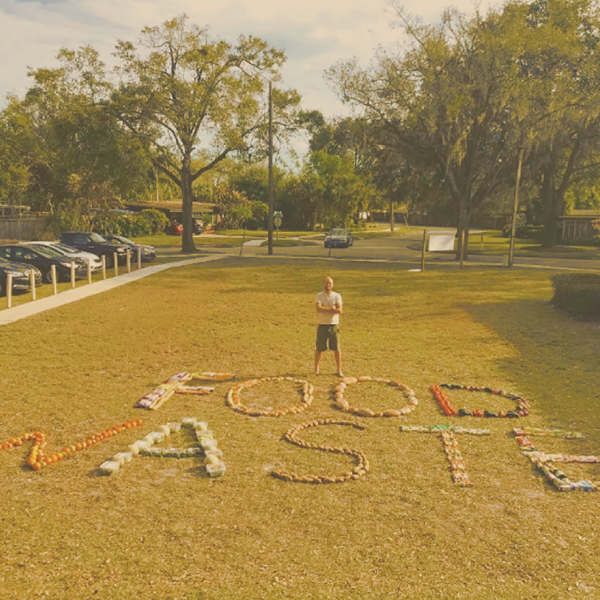ROB GREENFIELD on Confronting Convenience /123
Photo via Rob Greenfield
In our ever interconnected world, it feels near impossible to extricate ourselves from the harmful systems and oppressive structures that we seek to dismantle. The sheer scale and far-reaching consequences of our global economies, food systems, and industries raise challenging questions around individual impact and personal responsibility. How can we find agency and power by taking meaningful action steps in our own lives, while also grounding our work and movements in structural transformation and systemic healing? On this episode, adventurer, activist, and humanitarian Rob Greenfield invites us to sit in the complexity of this question, as we discuss the beauty and difficulty of living a conscious, sustainable life in 2019.
“The purpose of living with less money is not in any way to stimulate poverty, but to show mostly privileged people that they can do with far less…”
Rob Greenfield
Rob has dedicated his life to creating a more sustainable and just world, embarking on extreme adventures and activism campaigns to bring attention to important global issues and inspire change. He is the creator of The Food Waste Fiasco, a campaign that strives to end food waste and hunger and has cycled across the USA three times on a bamboo bicycle to bring attention to sustainability issues. Rob’s current project, Food Freedom, is to grow and forage 100% of the food that he eats for an entire year. Rob travels the USA and the world speaking and hosting action days getting people involved and activated in making the world a happier, healthier place for all. He is the host of Free Ride on Discovery Channel, the author of Dude Making a Difference, and has spoken at over 130 events in 13 countries. Rob donates 100% of his media income to grassroots nonprofits and has committed to living simply and responsibly for life.
Take a moment to drop in this week and meditate on your own practices as you listen to Rob and Ayana’s insightful reflections on growing food and foraging, reimagining wealth and de-monetizing your life, how to hold and move through hypocrisy, and the importance of addressing intersectionality and structural oppression in this work. Amidst the hopelessness and paralysis we may feel in these times, Rob asks us to imagine how the offering of our one unique and precious life might cascade into a greater shift of consciousness. This week, we stand in the power of this truth: we have agency to embody the change we wish to see in the world and live in right relationship with those around us and the planet.
♫ Music is "Hearts on Fire" by The Range of Light Wilderness.
Take Action
Take a look at Rob’s list of book recommendations to learn more about the major influences in his work and explore what insight and information it might offer you! http://robgreenfield.tv/books/
Consider calculating your personal carbon footprint to see how your lifestyle, travel habits, and consumption choices contribute to your impact on the planet’s resources. Carbon Footprint’s comprehensive and detailed calculator offers helpful data points that compare your footprint to that of global and country averages: http://calculator.carbonfootprint.com/calculator.aspx?tab=8
While we recognize that the largest culprits of greenhouse gas emissions exist on a large, industry-wide scale, brainstorm a list of ways that you can take daily actions (however small) to minimize your impact on the Earth. This may look like hang-drying your clothes, eating a primarily plant-based diet, biking to work, supporting in-season local agriculture, sharing your leftover food, or simply buying less. You may want to read Rob’s guide on “How to live a Near Zero Waste Life”: http://robgreenfield.tv/waste/ Even if you cannot take these actions today, it is worth exercising these questions, envisioning future goals, and being in conversation with yourself and community.
If you have financial means, consider supporting climate initiatives and projects with your personal or organizational finances to offset energy use that you cannot avoid. Rob suggests using Native Energy (https://nativeenergy.com/product/carbon-offsets/) or The Gold Standard (https://www.goldstandard.org/get-involved/make-an-impact)...or, better yet, do your own research! What climate justice organizations, campaigns, or carbon-reduction projects do you feel connected to and invested in?



For The Wild Podcast is an anthology of the Anthropocene; focused on land-based protection, co-liberation and intersectional storytelling rooted in a paradigm shift away from human supremacy, endless growth and consumerism.